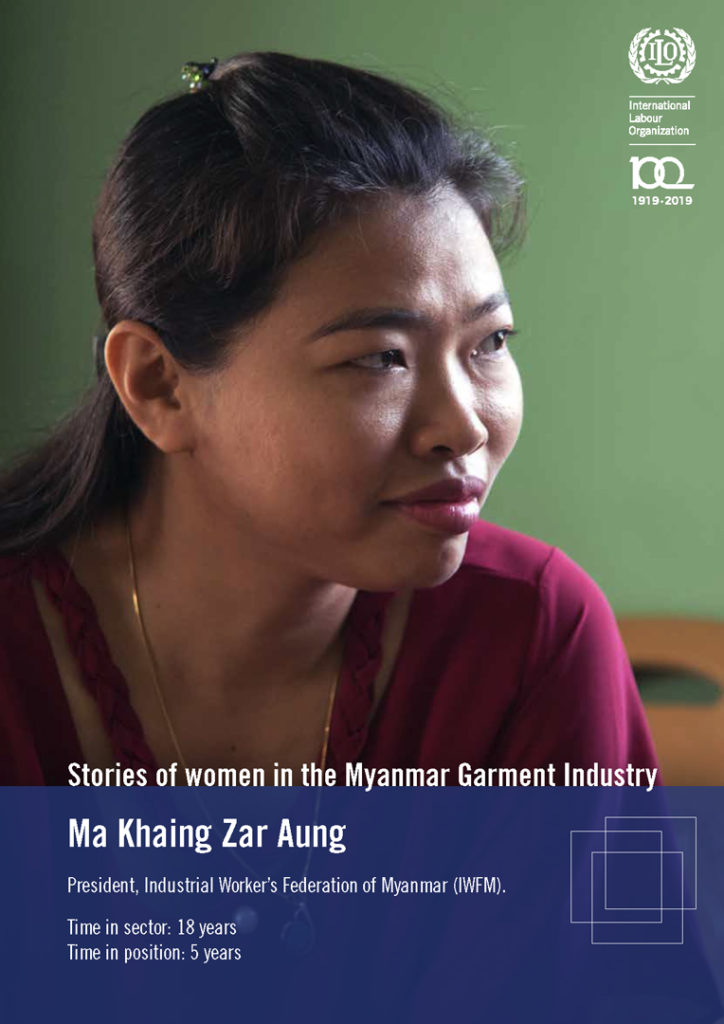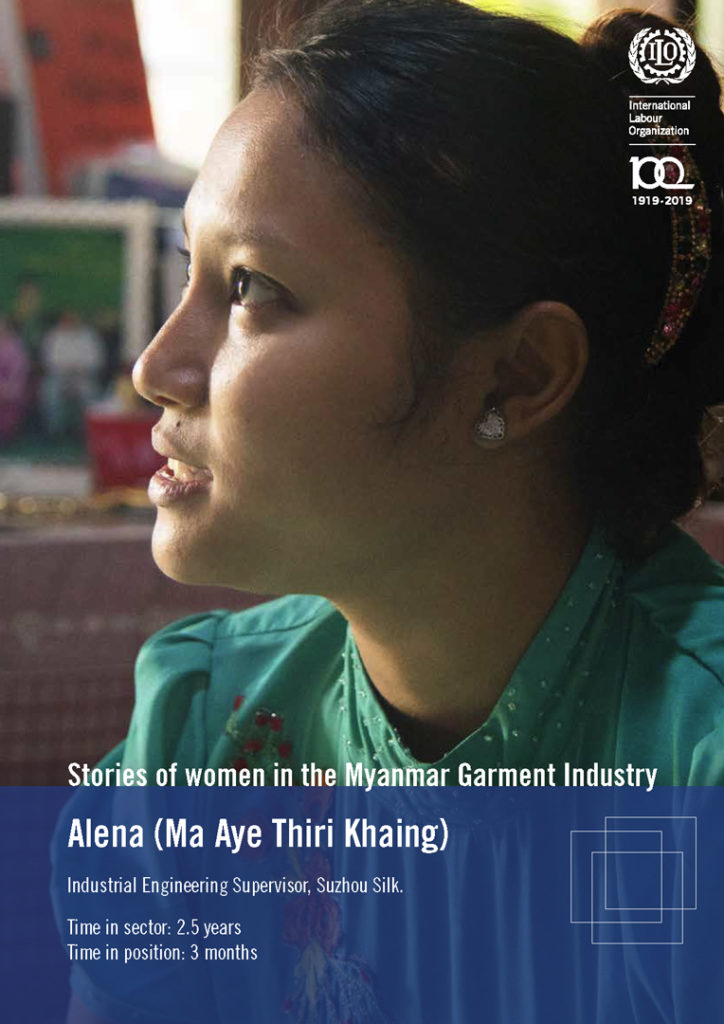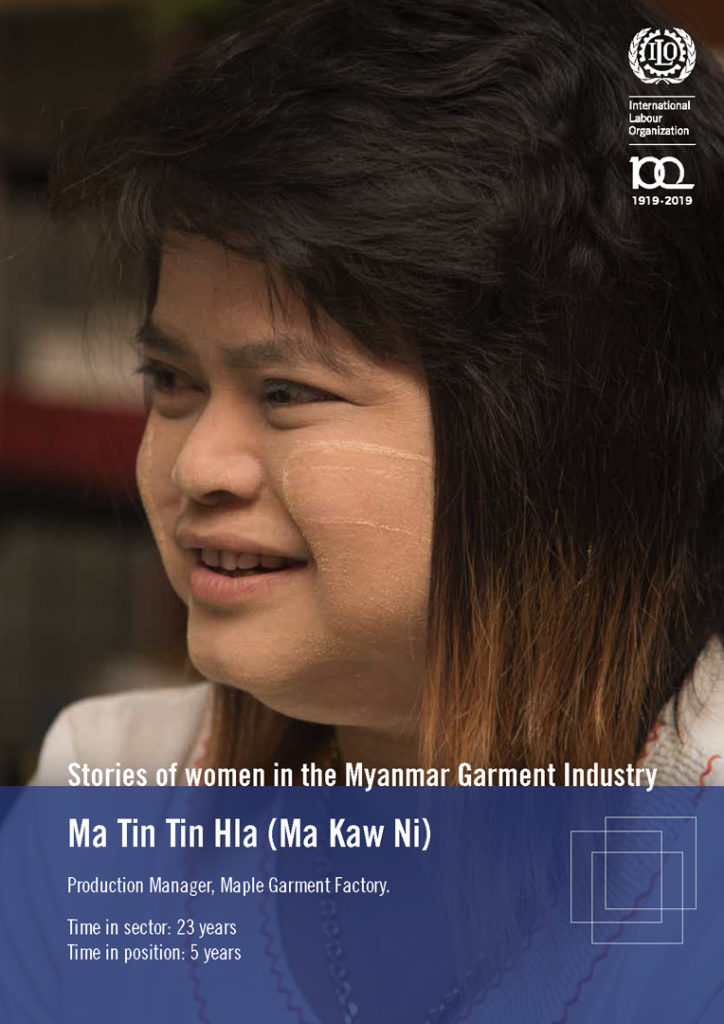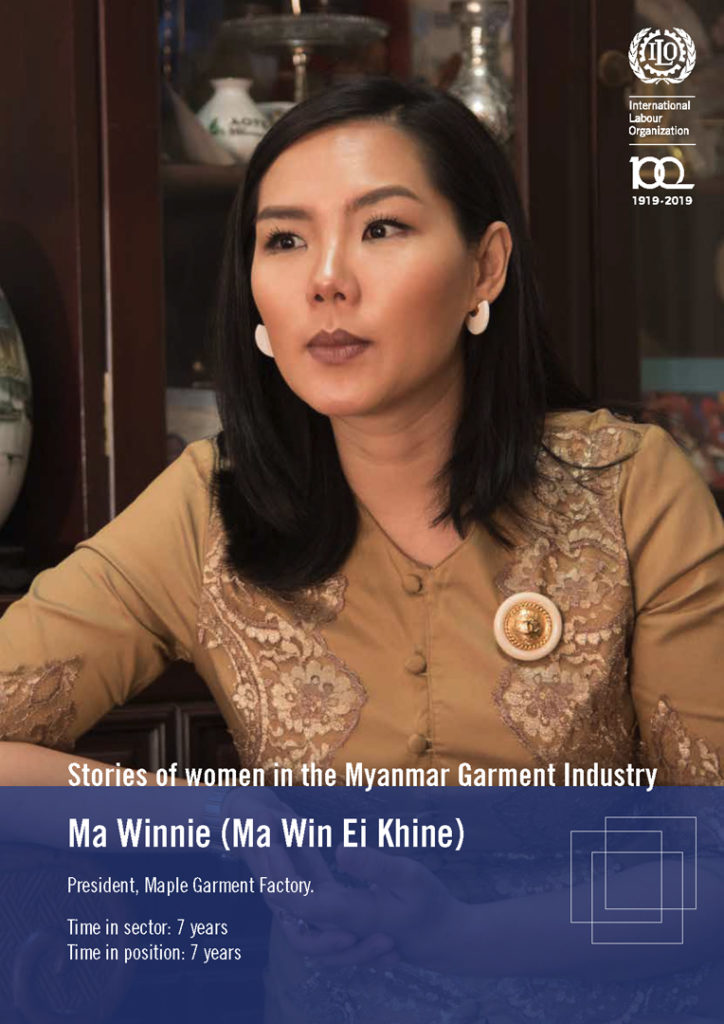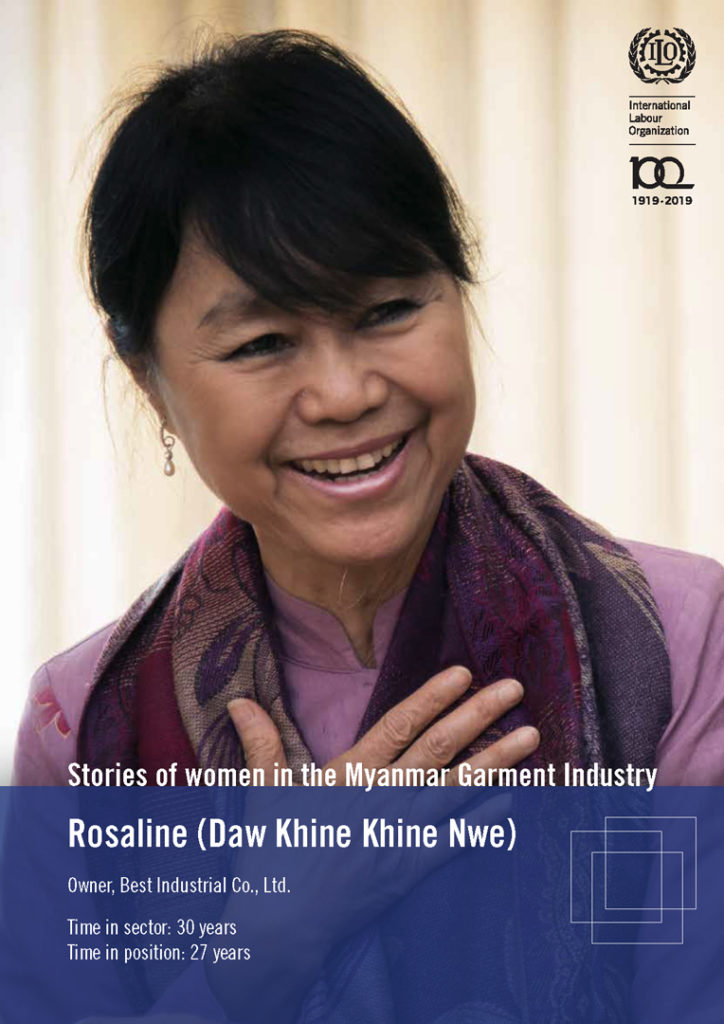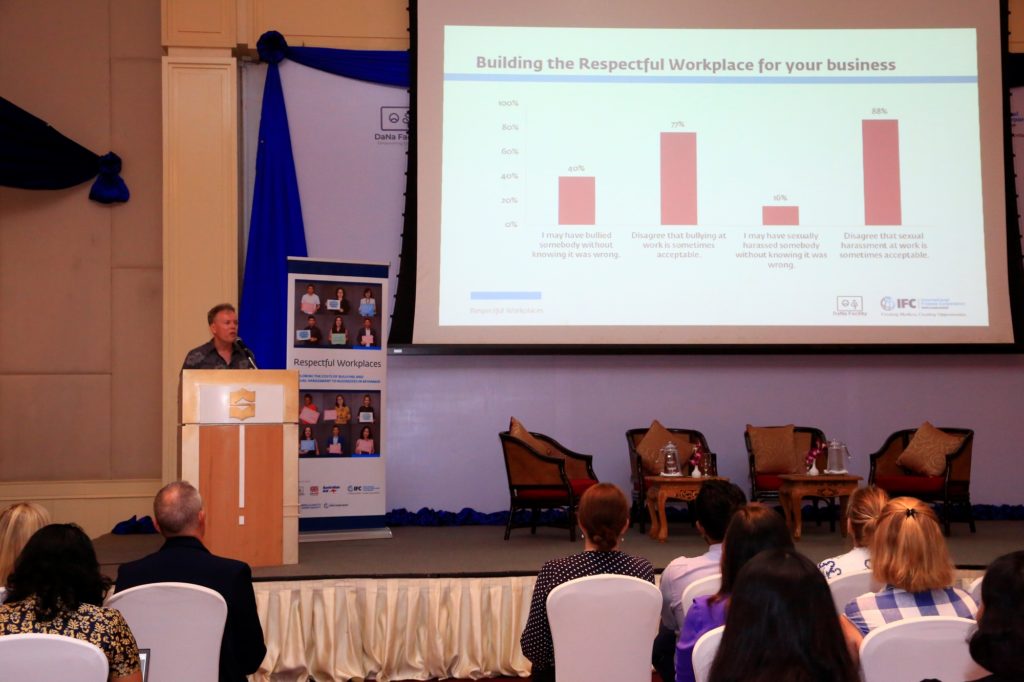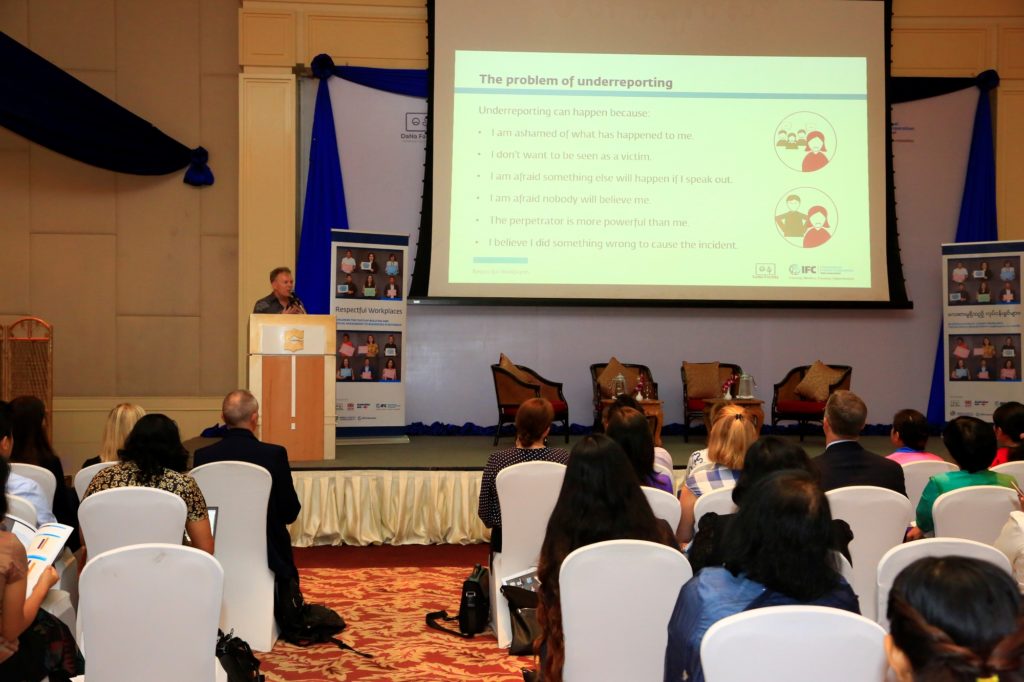Category: Uncategorised
Levelling the playing field in PNG with Gender Smart Safety
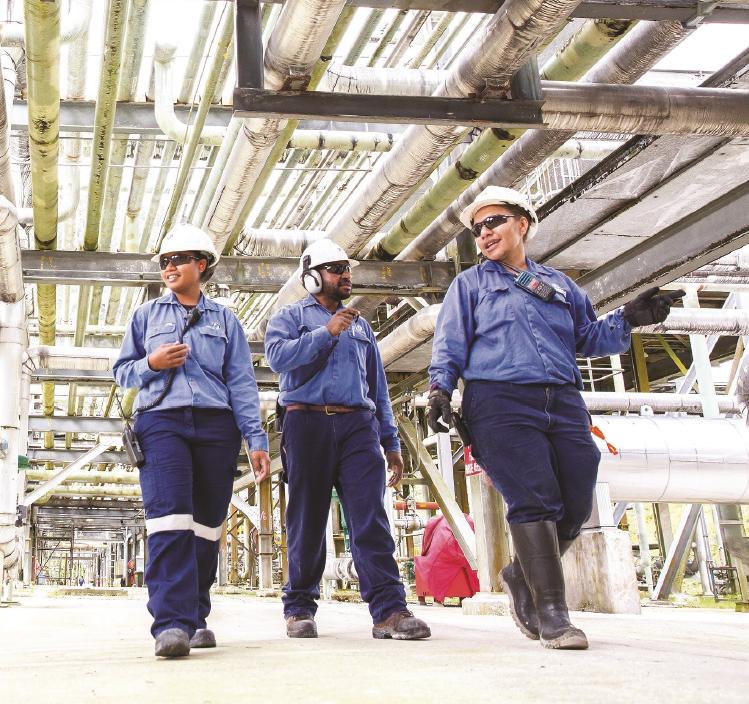
A recent article in PNG Report outlines how the Gender Smart Safety (GSS) training program – offered by the Business Coalition for Women – has helped a number of PNG businesses improve the safety of their female employees.
As PNG’s formal economy grows, more and more women are entering the workforce and in areas that have been traditionally dominated by men. Thus it is increasingly necessary to widen the safety lens and address aspects of women’s safety that have typically received very little attention.
PNG Report
The GSS training program was designed by Factive as part of its contract with the International Finance Corporation to help PNG businesses improve workplace safety for women. It was initially piloted by Oil Search, St Barbara and New Britain Palm Oil Ltd (NBPOL). The training program was recently adopted by Pacific Towing, the marine services division of the Steamships Group. It is also currently being further rolled out across various Oil Search operations in PNG.
Employer Supported Childcare in Myanmar

Factive is pleased to announce the publication of a new document from the International Finance Corporation (IFC): Employer Supported Childcare: A Practical Guide for Myanmar Businesses. This guide was developed based on the results of research Factive completed for IFC in 2019: Tackling Childcare: The Business Case for Employer-Supported Childcare in Myanmar.
The guide provides useful information for business owners in Myanmar on childcare support options for employees – a topic that demands more attention from employers during the rapidly changing global situation presented by Covid-19. It includes:
- An explanation of the business benefits of employer-supported childcare
- An introduction to some childcare support options employers can consider in the Myanmar context
- Case studies and examples of employer-supported childcare from Myanmar and around the world
We wish to express our thanks to IFC for the opportunity to assist with this research. We would also like to thank our research team in Myanmar (Thiri San, Moh Moh and Zu Zu) for their excellent work on this project.
Absenteeism and turnover in Myanmar’s garment sector
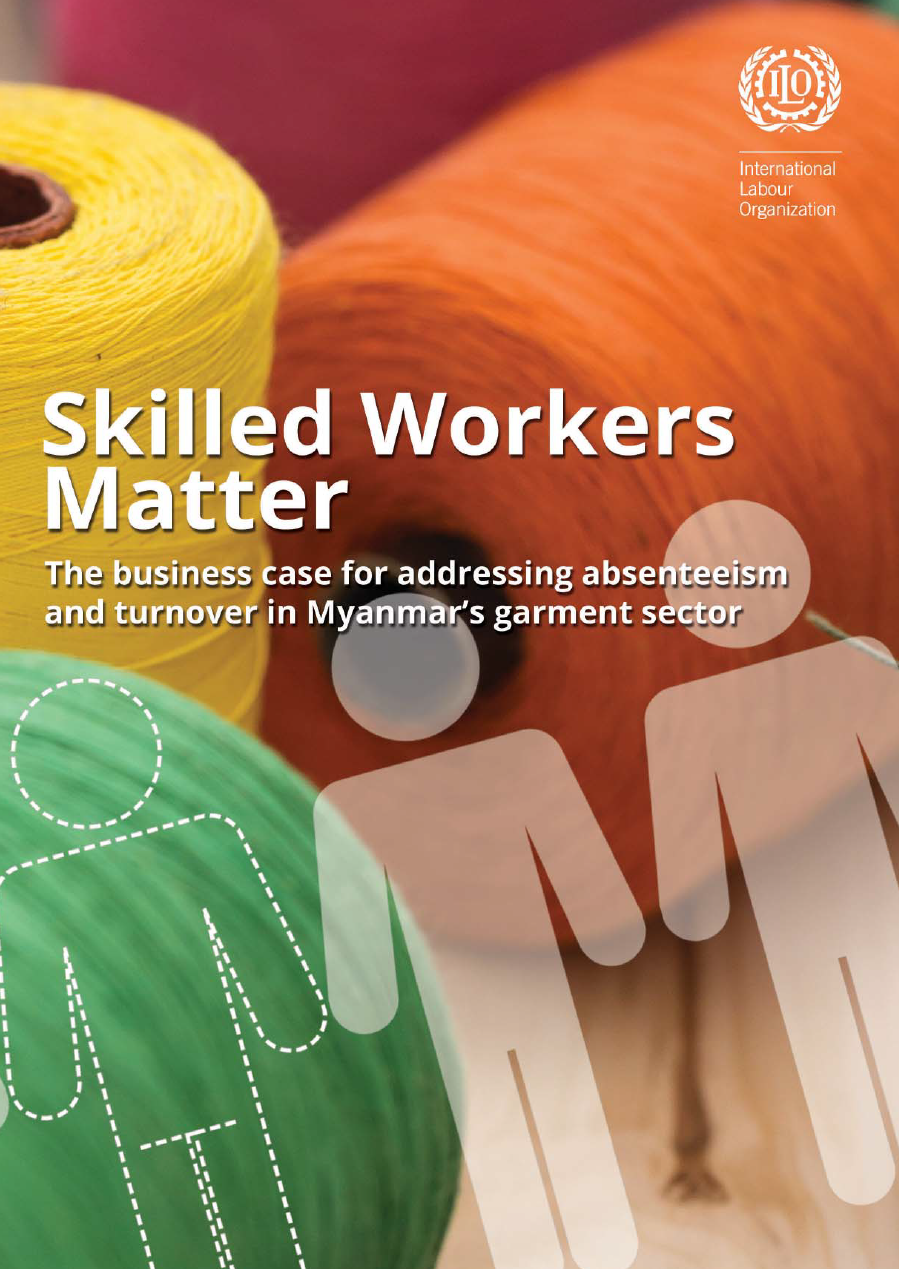
Factive is pleased to announce the publication of a new research report for the International Labour Organization (ILO): Skilled Workers Matter: The business case for addressing absenteeism and turnover in Myanmar’s garment sector.
In April 2019, the ILO in conjunction with the Myanmar Garment Manufacturers Association (MGMA) commissioned a study into the impacts of absenteeism and turnover on productivity in Myanmar’s garment sector. The findings in this report are based on data the Factive team in Myanmar collected from 16 participating garment factories. In total, 346 workers participated in this study.
One of the key findings of the study is that the solution to the problems of absenteeism and turnover in garment factories in Myanmar today is not all about money. Garment workers are especially attracted to workplaces where they are treated with respect and where they feel safe both in their work environment and on their daily commute.
To read more, you can download a copy of the research report from the ILO’s website at the link below:
https://www.ilo.org/yangon/publications/WCMS_736628/lang–en/index.htm
Gender Smart Safety in PNG
Factive recently completed a new round of training on Gender Smart Safety for the Business Coalition for Women (BCFW) in Papua New Guinea. Two companies participated in the training – Pacific Towing and Oil Search. The Gender Smart Safety training with Pacific Towing was recently featured in an industry journal, International Tug & OSV. Click the download link to read the article.
Factive has been working with the BCFW since 2016 to develop and run the Gender Smart Safety program and to build local capacity. This training program considers the safety needs of women working in PNG to ensure they can work safely in any role and location. We are very pleased to have handed over the running of the program to the BCFW, so they can continue to offer this training to businesses throughout PNG over the long-term.



The Business Case for Employer-Supported Childcare in Myanmar
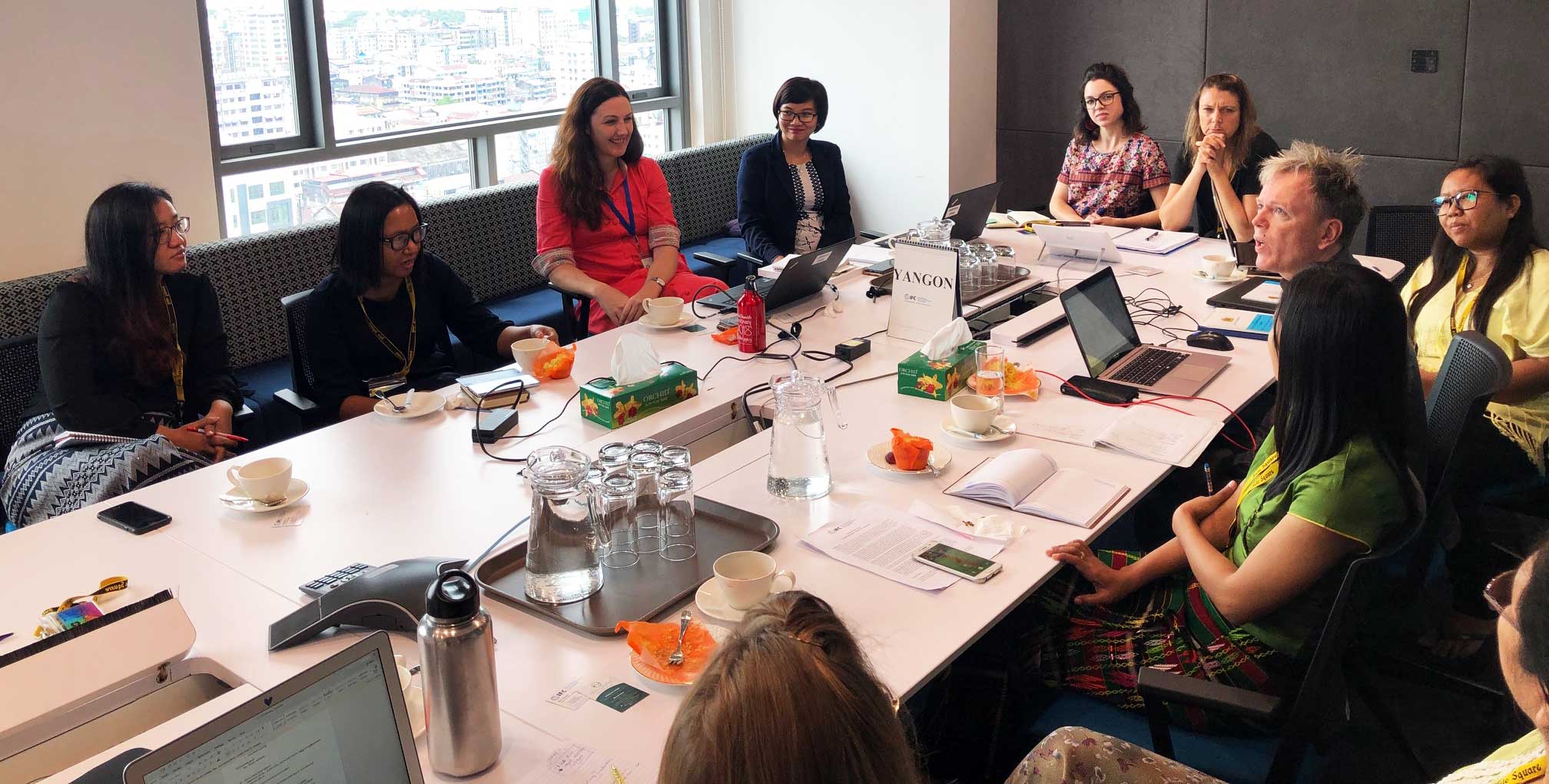
Factive Consulting has recently been awarded a new contract to conduct research into employer-supported childcare in Myanmar. The kick-off meeting was held in Yangon earlier this week with key project stakeholders and Factive’s research team led by Dean Laplonge. The project will run from June through to November this year.
A lack of access to childcare is a key barrier to women’s participation in the workforce in many markets around the world. Dean will work with Factive’s national consultants in Myanmar to explore the opportunities and barriers that exist in relation to the provision of childcare support for employees in the private sector in Myanmar.
This project is part of IFC’s global work to help address gender barriers in employment by helping businesses create suitable childcare options for their employees. IFC released a report on the business case for employer-supported childcare in 2017. The report draws on extensive research and 10 detailed case studies from South Africa, USA, Turkey, Japan, Jordan, India, Brazil, Kenya and Germany. A copy of the full report is available from IFC website (Tackling Childcare – the Business Case for Employer-Supported Childcare).
Stories of successful women in Myanmar’s garment industry.
We have all seen headlines about the poor working conditions in Myanmar garment factories. While these headlines are certainly grounded in truth, the reality is that for many women in Myanmar, the garment industry is one of the few professions where they can earn enough money to cover their daily living expenses. And for some women, the garment industry has provided the basis for a successful and rewarding career.
Five of those women were the focus of a recent ILO project to highlight the stories of some of the garment industry’s female success stories. We were thrilled to work with the ILO on this project and to meet the inspiring women who kindly contributed their stories and their time. The profiles were written during a series of interviews in the women’s homes and places of work in and around Yangon, Myanmar.
These profiles are meant to inspire the new generations of women coming to play an active role in the world of work, providing examples of how these female leaders cope with life in and beyond the workplace. The profiles include a number of powerful and inspiring women who already hold prominent roles in the Myanmar’s garment industry, be they factory-level operators, supervisors, heads of enterprises, and directors of trade unions or employers’ organizations.
Ms Catherine Vaillancourt-Laflamme, Chief Technical Advisor / Project Manager, ILO Liason Office in Myanmar.
We would like to thank Catherine from the ILO Liason Office in Myanmar for the opportunity to work on this creative and inspiring project, and thanks also to our National Consultants Moh-Moh and Thiri-San who arranged and conducted the interviews.
The profiles can be downloaded directly from the ILO’s website at this link.
New study finds attitudes towards domestic and sexual violence are changing in Solomon Islands

A new report has been released on The Impact of Domestic and Sexual Violence on the Workplace in Solomon Islands. The International Finance Corporation (IFC) study finds domestic and sexual violence to be pervasive, recent and regular, to have a profound impact on employee well-being, and create substantial costs to businesses.
Encouragingly, however, the study found that attitudes towards domestic and sexual violence are changing. There are much lower levels of acceptance of violence today, compared to previous studies.
The report was produced by IFC in collaboration with the Solomon Islands Chamber of Commerce and Industry, SICCI, the peak representative body for the private sector in Solomon Islands.
If you are interested in this topic, you may be interested to listen to a recent podcast interview with Shabnam Hameed, one of the authors of the report. In the podcast, Shabnam discusses IFC’s work with the private sector to address domestic and sexual violence as a workplace issue.
Women’s Empowerment in Egypt Solar Park

Factive’s principal consultant, Dean Laplonge, had the pleasure of meeting SamaHer in December last year when he was conducting a gender assessment for the International Finance Corporation on their Egypt Solar Fit project. Her recalls her being passionate and determined. And now, rightfully proud.
Despite strong social resistance, SamaHer has proven that so-called “cultural” reasons to explain why women should not do certain types of work can be challenged.
Congratulations from Factive to SamaHer!
Go here for more on SamaHer’s story.
Workplaces free from bullying and sexual harassment are good for business
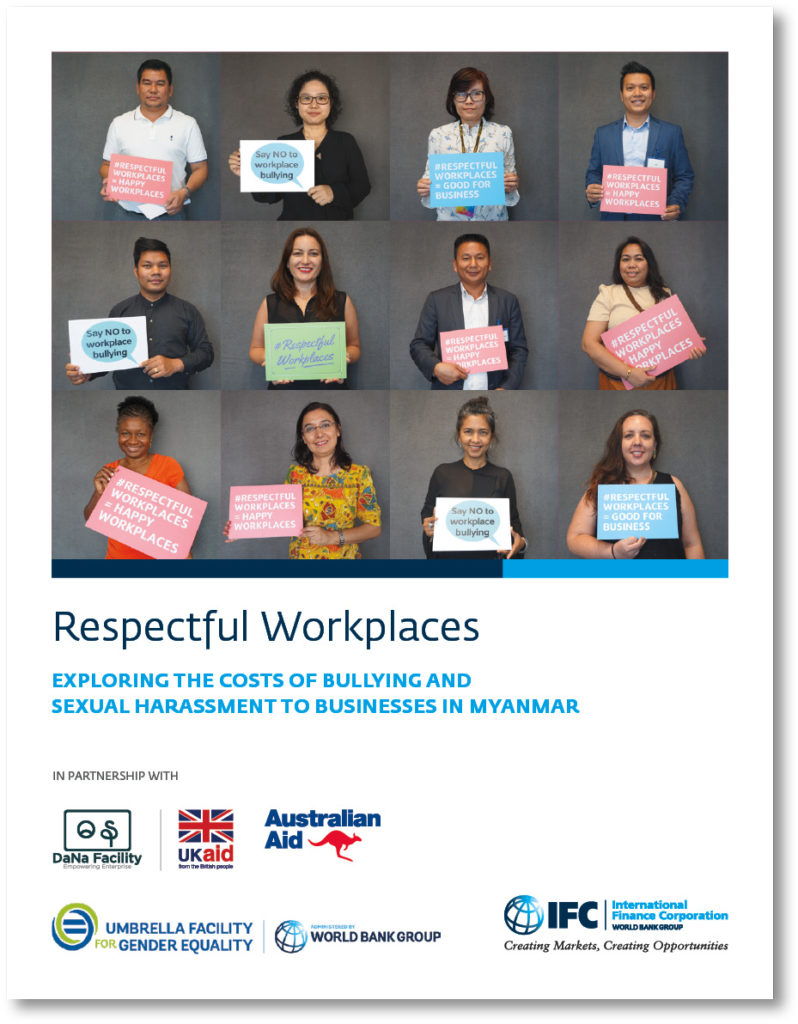
Factive is pleased to announce the official launch of the report: Respectful Workplaces: Exploring the Costs of Bullying and Sexual Harassment to Businesses in Myanmar.
The study was carried out by the Factive team in Myanmar on behalf of International Finance Corporation (of the World Bank Group) and DaNa Facility between September and November in 2018 to understand the experiences of employees relating to bullying and sexual harassment in Myanmar workplaces. There were 39 participating organisations, including 26 large businesses in the agribusiness, finance, retail and tourism sectors.
Some of the key findings of the report:
- Sexual harassment affects all workplaces. 21 percent of employees said they had witnessed an incident of sexual harassment in their current workplace.
- Bullying is more common than sexual harassment. More than half of the employees said they had witnessed an incident of bullying.
- Bullying and sexual harassment are a significant cost to business. On average, the study found businesses experience a 14% loss to labor productivity due to presenteeism caused by bullying and sexual harassment.
- Businesses are not adequately prepared to respond. Very few businesses had formal policies and procedures in place. The vast majority of employees do not report incidents of sexual harassment and bullying. Instead, they ignore them or discuss them on social media.
- Bullying and sexual harassment are workplace culture issues that can be addressed. There were considerable differences in the levels of bullying and sexual harassment across the 26 large businesses. This contradicts the common excuse that these disrespectful behaviors are a natural part of Myanmar culture.
The report offers business leaders in Myanmar an opportunity to understand the experiences of employees relating to bullying and sexual harassment in their workplaces. It also provides a set of practical recommendations, targeting business leaders, human resource managers, employees and other interested parties, to help create workplaces that are safe and free from bullying and sexual harassment.
The report was produced by IFC’s Gender Secretariat in partnership with DaNa Facility. You can download a free copy of the report by visiting IFC’s website. Both Burmese and English versions are available.
What role for business in addressing gender-based violence?

Live panel: Thursday 28 March, 15:00-16:00 GMT / 11:00-12.00 EDT
Save this date to join us for a live panel discussion on what role business can play in addressing issues around gender based violence. A panel of experts from a range of sectors and global regions will be participating to share their insights and experience. The panel will include:
- Chiara Condi, President and Founder, Led by HER
- Katja Freiwald, Global Director Global Partnerships, Unilever
- Shabnam Hameed, Operations Officer, Gender, IFC
- Laura Hawkesford, Head of Private Sector Engagement, CARE International
- Dean Laplonge, International Lead Researcher, Gender, IFC & Director, Factive Consulting
- Neta Meidav, Co-Founder & CEO, The Vault
The topics up for discussion will include:
- Why is gender-based violence an important topic businesses should be thinking about?
- What are the best examples of business approaches and interventions to prevent and respond to gender-based violence?
- How can businesses and other organisations collaborate to address gender-based violence in workplaces and communities?
The panel discussion will be hosted and moderated by Business Fights Poverty. For further information and instructions on how to participate, please browse to their forum page.
